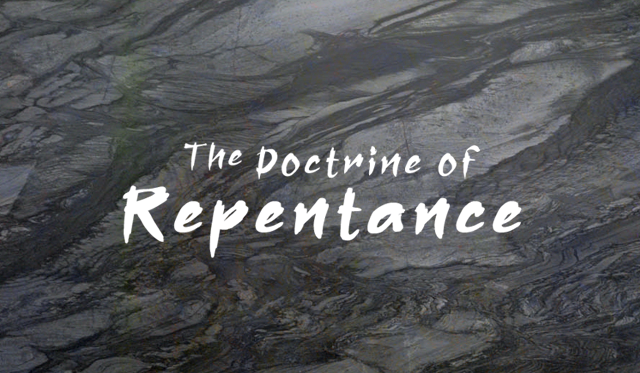In Acts 13:26 the Apostle Paul says, “… whosoever among you feareth God, to you is the word of this salvation sent.” And in Proverbs 1:7 Solomon tells us that “The fear of the LORD is the beginning of knowledge …”
Therefore, before the Gospel is of value to someone they must have the fear of God. In Proverbs 8:13 Solomon tells us that, “… the fear of the LORD is to hate evil.”
In one of his last speeches Joshua admonished Israel saying, “… fear the LORD, and serve him in sincerity and in truth: and put away the gods which your fathers served on the other side of the flood, and in Egypt; and serve ye the LORD.” (Joshua 24:14) but when they pledged to serve the LORD Joshua corrected them staying, “Ye cannot serve the LORD: for he is an holy God; he is a jealous God; he will not forgive your transgressions nor your sins.” (Joshua 24:19)
The Apostle Paul tells us that though all men have the the law of God written on their conscience (Romans 2:13-15), the law of God was given so that men would be without excuse regarding the knowledge of sin (Romans 3:20).
Giving the law did not give men the ability to do good nor could it keep men from doing evil. In fact Jesus made it clear that whoever sins is a bond servant/slave of sin (John 8:34) and is of the devil (John 8:44).
In Romans 7 the Apostle Paul wrote about his former life as a Pharisee. He knew the law of God and he had the fear of God but because he was in the flesh (Romans 7:5) there was a law within him that made him a slave to sin (v. 14) . As a result, Paul did what he did not want to do (v. 15-24).
What the law did do was to give man the ability to see where he was in regard to God’s law. God’s law revealed man’s sin against God. It showed man that he is guilty before God and revealed that man’s sin is rightly worthy of God’s judgment.
Like the people of Nineveh who heard the proclamation of Jonah the only appropriate response to this knowledge is repentance that comes from godly fear.
God is merciful, meaning that He does not want to destroy anyone without giving them the ability to turn around.
The ability to turn around is the best way to understand repentance. It is a gift from God. In
2 Timothy 2:25, Acts 5:31 and Acts 11:18 repentance is shown to be something that God gives and/or grants.
In the following chapters I will try to explain God’s mercy and grace in making a way for all men to be saved from Sin.
But lets look a little more into repentance.
The repentance that God gives/grants is not God’s forgiveness. God’s forgiveness is part of it but remember how Joshua said that God would not just forgive their sins? God can choose to forgive (pardon) past sin committed allowing for a season of time for change but the record of the sin is still there, though temporarily sealed. There is still a debt to be paid and a change of the sinner’s heart and nature that must happen.
Another thing …
Joshua was telling them not to think lightly about choosing to serve the LORD. As the Apostle Paul pointed out when you live under the law you are a debtor to keep the whole law (Galatians 5:3). When you seek to follow the law apart from the Spirit of God you must bow before every letter of the law, which God never intended (Matthew 23:4, Mark 2:27, Romans 7:6, Acts 15:10). You must do the whole law which Paul said does not justify your sin before God (Galatians 2:15-21).
When you are a sinner both you and your works are dead. Every attempt that you make to keep God’s law is pointless when it comes to pleasing God because of the sin that is flowing out of you. The only thing that justifies the sinner in the sight of God is to trust in God to save them FROM their sins. What is done in that faith does please God and we see that throughout the whole Old Testament.
After King David took his most devoted warrior Uriah’s wife and then had him killed to cover up the crime he was brought to repentance by the Prophet Nathan and then wrote Psalm 51.
“Have mercy upon me, O God, according to thy lovingkindness: according unto the multitude of thy tender mercies blot out my transgressions. Wash me throughly from mine iniquity, and cleanse me from my sin. For I acknowledge my transgressions: and my sin is ever before me. Against thee, thee only, have I sinned, and done this evil in thy sight: that thou mightest be justified when thou speakest, and be clear when thou judgest. Behold, I was shapen in iniquity; and in sin did my mother conceive me. Behold, thou desirest truth in the inward parts: and in the hidden part thou shalt make me to know wisdom. Purge me with hyssop, and I shall be clean: wash me, and I shall be whiter than snow. Make me to hear joy and gladness; that the bones which thou hast broken may rejoice. Hide thy face from my sins, and blot out all mine iniquities. Create in me a clean heart, O God; and renew a right spirit within me. Cast me not away from thy presence; and take not thy holy spirit from me. Restore unto me the joy of thy salvation; and uphold me with thy free spirit. Then will I teach transgressors thy ways; and sinners shall be converted unto thee. Deliver me from bloodguiltiness, O God, thou God of my salvation: and my tongue shall sing aloud of thy righteousness. O Lord, open thou my lips; and my mouth shall shew forth thy praise. For thou desirest not sacrifice; else would I give it: thou delightest not in burnt offering. The sacrifices of God are a broken spirit: a broken and a contrite heart, O God, thou wilt not despise. Do good in thy good pleasure unto Zion: build thou the walls of Jerusalem. Then shalt thou be pleased with the sacrifices of righteousness, with burnt offering and whole burnt offering: then shall they offer bullocks upon thine altar.” (Psalm 51 KJV)
David could not yet enter into this covenant but being a prophet he perceived it.
John the Baptist also understood something of the New Covenant. He knew that the Messiah was coming and he knew that he was the Voice of one crying in the wilderness. He called out in the spirit of Elijah for people to repent and be baptized for the remission of their sins declaring the coming of one after him who would baptize with the Holy Spirit and fire.
“As it is written in the book of the words of Esaias the prophet, saying, The voice of one crying in the wilderness, Prepare ye the way of the Lord, make his paths straight. Every valley shall be filled, and every mountain and hill shall be brought low; and the crooked shall be made straight, and the rough ways shall be made smooth; And all flesh shall see the salvation of God. Then said he to the multitude that came forth to be baptized of him, O generation of vipers, who hath warned you to flee from the wrath to come? Bring forth therefore fruits worthy of repentance, …” -Luke 3:4-8
The genuine fruit of repentance is neither simply regret which is based on wishing that one had not gotten in trouble nor is it also remorse which is centered on wishing that one had not hurt another person, but rather a broken heart due to having sinned against God. Repentance is when one turns their back on the evil that they were doing and comes to God with a genuinely broken heart. Coming as a little child with nothing in hand and in need of everything, trusting that God is good and will not only forgive but also save from sin. The motivation is a genuine desire to make what has been done wrong right once again but the knowledge that they have offended and hurt the perfect and Holy God, and that apart from His goodness and mercy there is no remedy.
Have you repented and/or turned away FROM your sins and turned to God in godly fear?
I invite you to join me in the next part as we continue in the doctrine of Christ.






